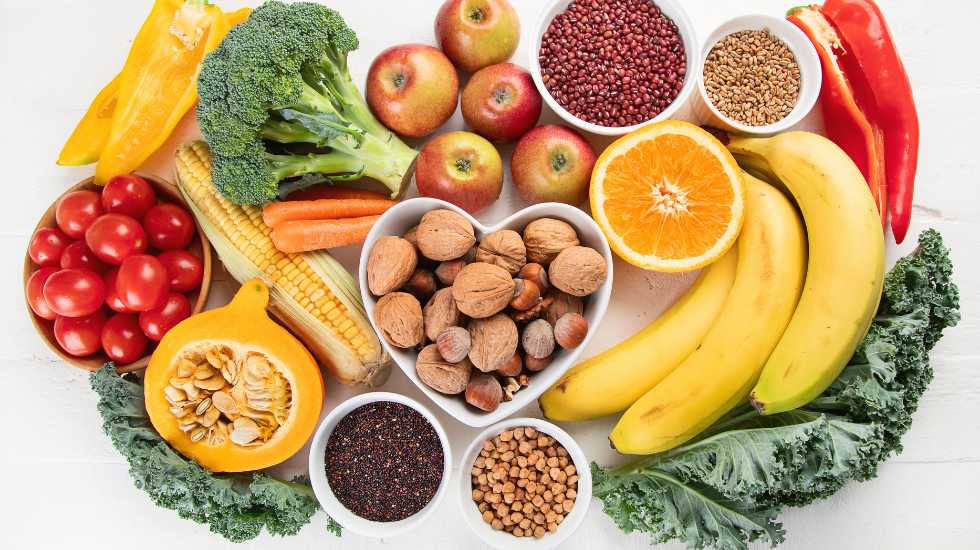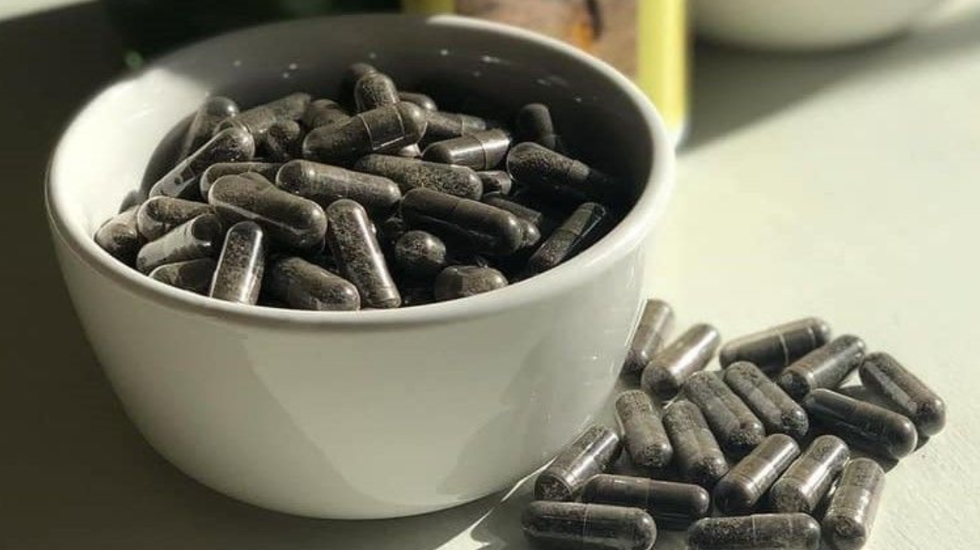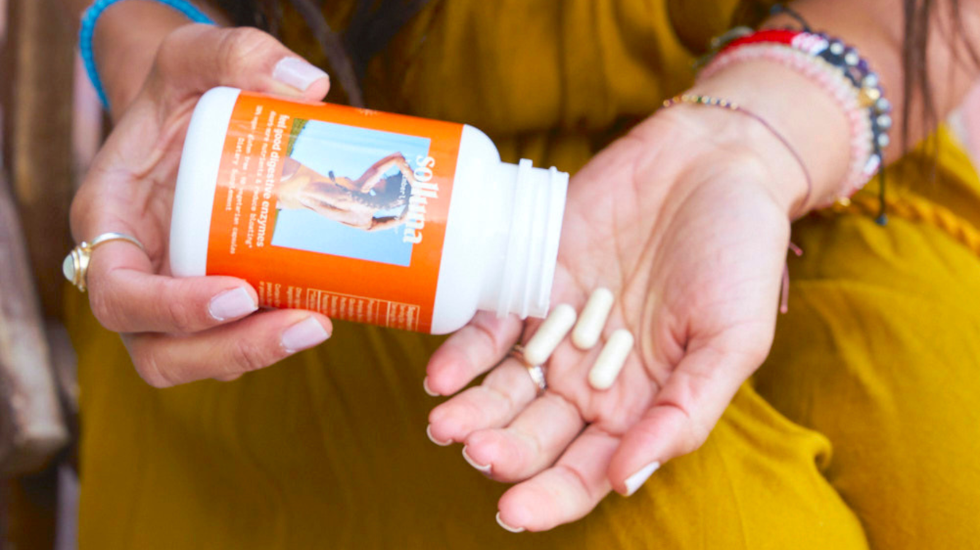When people talk about how to achieve healthy digestion and prevent gas and bloating (we all talk about that, right?), the conversation probably goes straight into a discussion about probiotics and fiber. So, which one should you prioritize to keep your digestion on track? Should you pop a probiotic pill or dive headfirst into a bowl of fiber-rich goodness?
Rather than pitting them against each other, we should embrace the benefits of both to promote a well-functioning digestive system.
As you probably already know, fiber plays an important role in your digestion and regulates your gut and keeps things moving. However, it doesn’t balance your gut ecology as probiotics do. Together, the probiotics facilitate gut health, and the fiber helps move things along in the digestive tract to help you keep feeling light and free of toxins. When they work in tandem, your body reaps the best benefits of both and enjoys better overall health.
But how exactly do these two components work together to create a healthy gut? Let’s break this down and look at both parts of this amazing whole!
How Does Fiber Aid Your Digestion?
Dietary fiber, or simply fiber, is a healthy carbohydrate that your body can’t digest. Dietary fiber has more purposes than just maintaining your digestive health; it also helps regulate your body’s blood sugar and helps keep your hunger under control. Fiber acts like a broom, helping to keep our digestive tract clean and healthy by sweeping out waste and toxins. So, not only does fiber improve digestion, but it also helps to optimize the overall nutrient uptake and health of our bodies.
Dietary fiber comes in two forms:
- Soluble fiber: This kind of fiber dissolves in water and is found in foods like oatmeal, chia seeds, lentils, beans, and nuts. Soluble fiber helps maintain your blood glucose levels and can help lower blood cholesterol levels.
- Insoluble fiber: This fiber does not dissolve in water and is probably what you think of when you hear “fiber.” Insoluble fiber helps keep you regular, prevents constipation, and moves food through your digestive tract. Insoluble fiber is found in foods like brown rice, quinoa, leafy greens, legumes, and almonds.
Not only can a healthy diet rich in fiber help prevent constipation and digestive discomfort, but it can help reduce the risk of serious health conditions like heart disease and diabetes.
How to Increase Your Fiber Intake
Fiber plays a crucial role in digestion by aiding in the absorption of nutrients from the foods we eat.
You need 25 to 35 grams of fiber each day. A lot of people try to get their daily fiber intake with a fiber supplement, such as psyllium. I actually recommend avoiding these because they can cause uncomfortable bloating and gas! With a healthy diet rich in fresh fruit, vegetables, and whole grains, you can easily get your daily fiber intake!
If you’re working on increasing your daily fiber intake, you may find that it’s not the most comfortable experience! I hear a lot from people about the bloating and discomfort that comes with these new dietary measures. As a fellow fiber fanatic following the Beauty Detox lifestyle, I’ve been there, and it’s no walk in the park!
This is normal, and it will pass, but it’s important that you stick with it! If you previously weren’t getting enough fiber in your diet, your body is adjusting to your new, higher fiber intake. Once your body has acclimated to it, you can say bye-bye to that bloating!
Also, don’t forget to drink plenty of water when you’re upping your fiber intake. It’ll help your body adapt to all that extra fiber and flush out your system.
Related: The Good, Bad and Ugly of Fiber!
How Do Probiotics Boost Digestion?
If you’ve been reading the Solluna blog, then you probably know a thing or two about probiotics! I’ve even written an entire article about the differences between prebiotics vs. probiotics vs. postbiotics, so if you want to learn more about that, check that one out once you’re done reading this one! :)
Probiotics are simply the healthy bacteria that live in your gut microbiome and help keep bad bacteria in check. Probiotic bacteria are vital to promoting a healthy digestive system, boosting your immune system, reducing inflammation, and supporting your overall health.
All these good bacteria make up what’s called your enteric nervous system (ENS), your body’s “second brain” located in your gastrointestinal tract! This balance of gut bacteria— including the potentially harmful bacteria— is the key to flourishing gut microbiota, a robust ENS, and better overall health.
You can get these healthy bacteria in your diet by eating fermented foods like sauerkraut, kimchi, and kombucha, but many opt for a dietary supplement to get the probiotics their bodies need. Actually, doing both is the best way to get all the probiotic bacteria your body needs to be at its best.
However, you don’t want to just choose any probiotic supplement! I highly recommend a good SBO probiotic supplement because they’re hardier, more efficient, and they’re closer to nature.
You may be wondering now, though, where does dietary fiber figure into this?
Related: How to Choose a Probiotic Supplement
Fiber and Probiotics: A Digestive Power Couple
While taking a probiotic supplement is a great way to boost your gut health, it’s important to remember that probiotics work best when paired with fiber. In fact, fiber acts as a prebiotic, helping to feed the good bacteria in your gut and allowing them to thrive.
Remember: while fiber helps keep things moving in your digestive tract, it doesn’t help keep things balanced like the live bacteria in probiotics do.
And when it comes to nourishing all those healthy bacteria, I think you can see where this is going. ;)
Dietary fiber and probiotics work together to ensure that your body is at its most efficient. Eating a diet rich in both soluble and insoluble dietary fiber helps nurture your gut microbiome’s beneficial bacteria and gives them the energy they need to keep your digestion and your health in balance.
Unfortunately, the Standard American Diet (SAD) is low in fiber, and high in extra fat, sugar and salt— in other words, ingredients that kill that good probiotic bacteria! As a result, you’ll start to notice uncomfortable side effects like occasional constipation, gas, bloating, and maybe even symptoms of disorders like inflammatory bowel disease (IBD) or irritable bowel syndrome (IBS).
Combining probiotics and dietary fiber can help improve the symptoms caused by metabolic abnormalities, but one study has also found that combining the two could also combat weight gain caused by prescription medications for patients with severe mental disorders. This happened because it kept the participants’ insulin sensitivity in balance. [1]
This study also found that when it came to the benefits of both dietary fiber and probiotics, combining the two provided significantly more benefits than just taking one or the other. Combining the two also combatted further weight gain, as well as prevented worsened metabolic symptoms.
Want To Get Even More Out of Probiotics and Fiber? Use Digestive Enzymes!
If probiotics and fiber are a powerful beauty duo, then digestive enzymes are the third musketeer!
The combination of all those friendly bacteria plus plenty of dietary fiber is key to healthy digestion, but if your body isn’t used to digesting all that fiber, there’s a bit of an adjustment period. This is where the digestive enzymes come in.
Plants contain a lot of fiber, and it can leave you feeling pretty bloated and uncomfortable, especially if you’re just starting off on a plant-based diet or the Beauty Detox lifestyle.
Digestive enzymes, like my Feel Good Digestive Enzymes, contain cellulase, an enzyme that helps your body more easily break down fiber. Unlike some other digestive enzymes, cellulase is not made by the human body, but it’s still vital to healthy digestion and nourishing your gut flora. [2]
Even if you’ve been on a plant-based diet for a while, we all have days where our digestion just isn’t as robust as it should be. It happens. :) Digestive enzymes can help there by giving your digestion that extra oomph it needs to keep you feeling light and energetic.
Probiotics and Fiber: Why Not Both?
Separately, probiotics and fiber are vital parts of healthy digestion and better overall health, as well as key components to both inner and outer beauty. Put them together, and you reap all their individual benefits and more!
So when it comes to probiotics and fiber, it shouldn’t be “either or.” To feel and look your best, why just go with one when both together are so much better? :)
In good health,
Citations
- Huang, Jing, et al. “The Effects of Probiotics plus Dietary Fiber on Antipsychotic-Induced Weight Gain: A Randomized Clinical Trial.” U.S. National Library of Medicine, Translational Psychiatry, 4 May 2022, www.ncbi.nlm.nih.gov/pmc/articles/PMC9068806/.
- “Cellulase.” Laboratoire THERASCIENCE, www.therascience.com/en_int/our-active-ingredients/enzymes/cellulase.






0 Comments